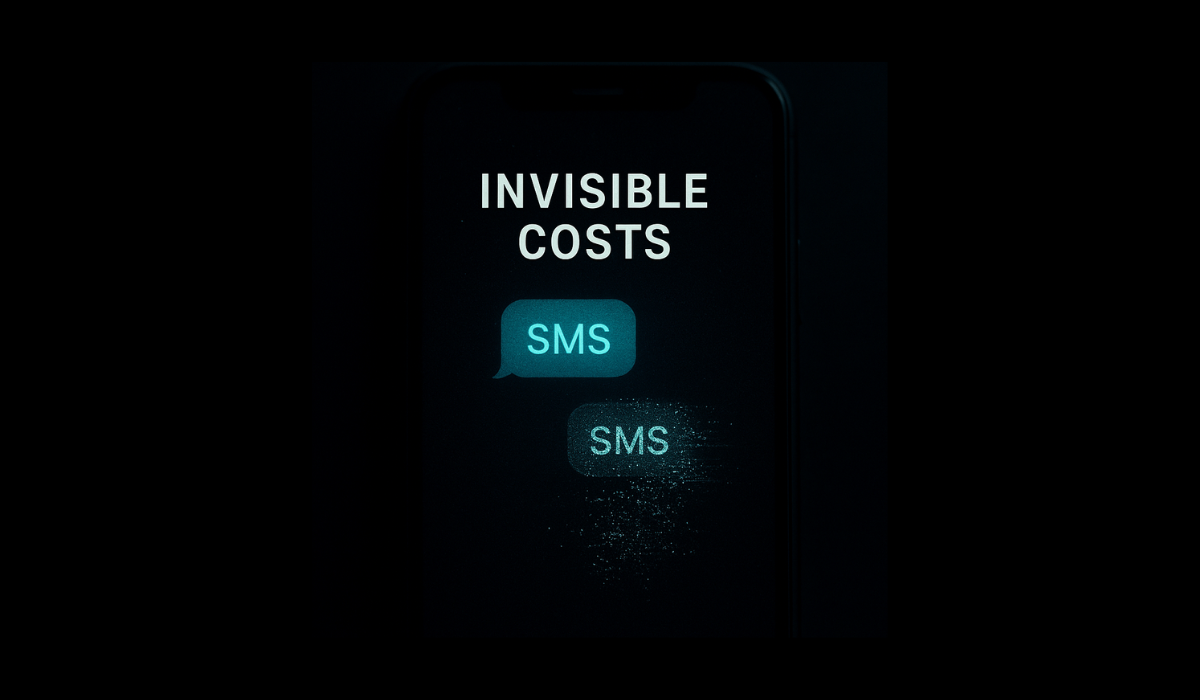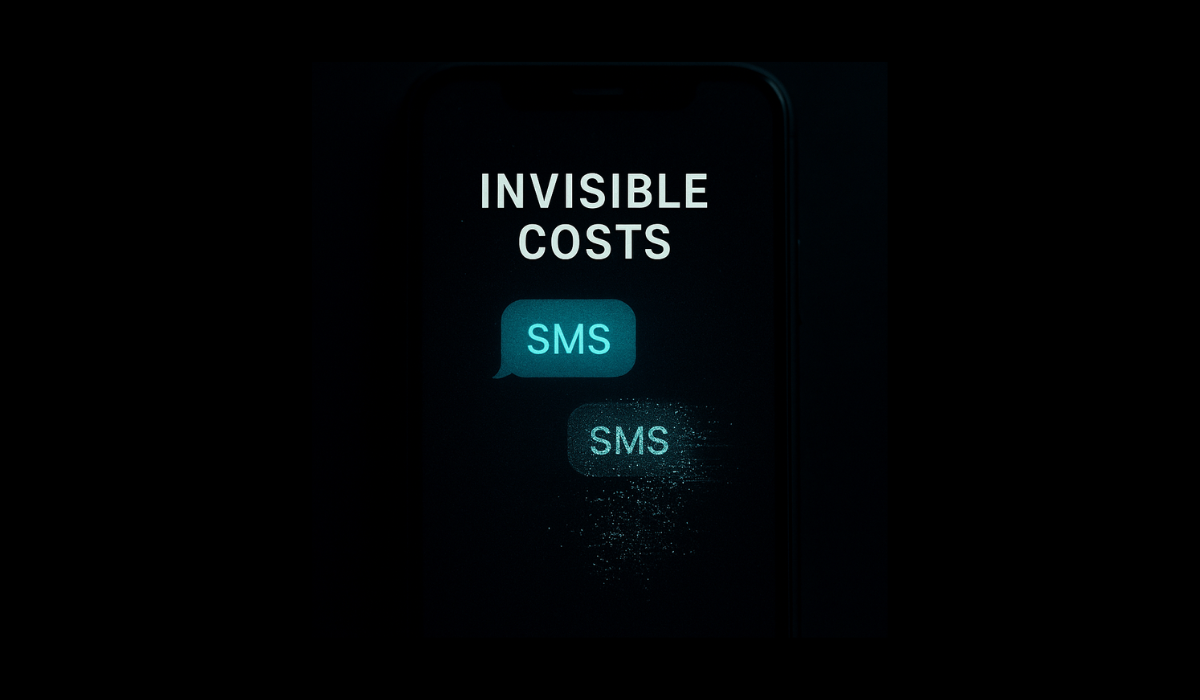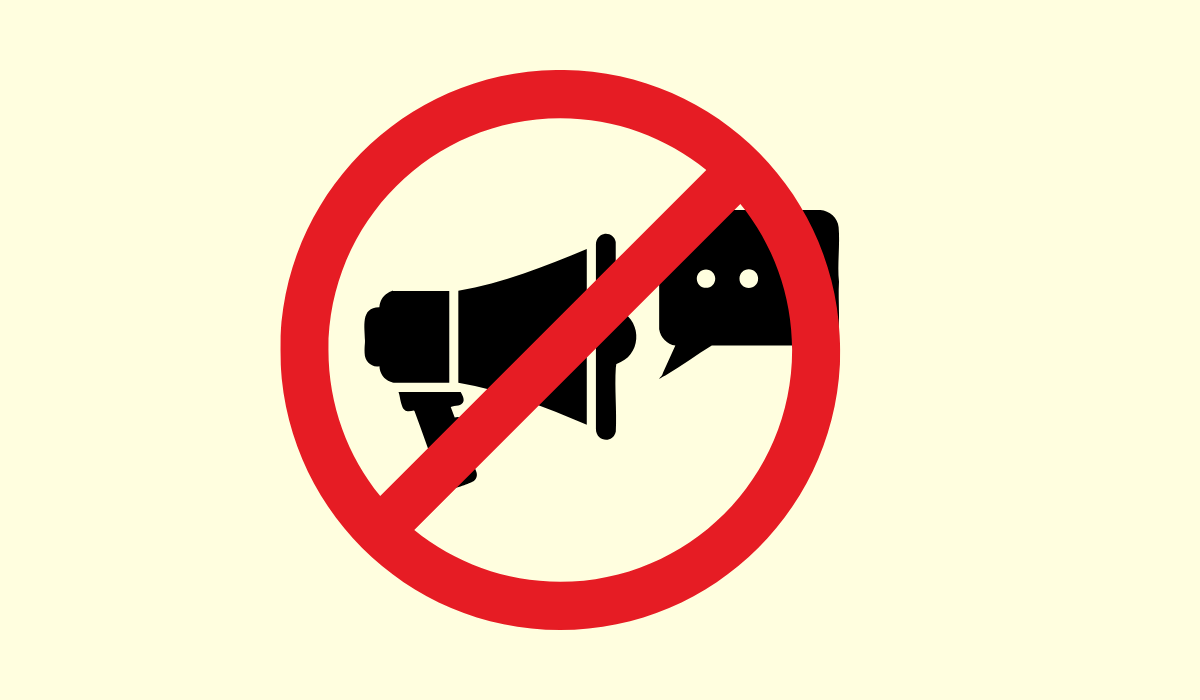Three months ago, your SMS campaigns hit 94% deliverability. Last month, 87%. This month, 81%.
SMS Verification API - Kill the 15% Waste Tax on Every Campaign
Three months ago, your SMS campaigns hit 94% deliverability. Last month, 87%. This month, 81%.
You didn't change anything. Your lists didn't get worse. Your message content is identical.
What changed: carriers started punishing you.

Every text you send to a disconnected number tells AT&T, Verizon, and T-Mobile that you're sloppy with data. They respond by downgrading your sender reputation - quietly routing your messages through slower channels, delaying delivery by hours, or dropping them entirely.
The 15% of your list that can't receive SMS isn't just costing you per-message fees. It's poisoning your relationship with every carrier that matters.
Why Sender Reputation Murders SMS Campaigns
Think of carrier reputation like email spam scores, except there's no inbox to check.
When Gmail flags you as spam, you see it - your opens crater. When Verizon downgrades your SMS sender rating, nothing obvious changes. Your messages just... arrive slower. Or not at all. There's no notification. No alert. Just silent performance decay.
The damage accumulates every time you hit:
- Numbers that were disconnected 6 months ago
- Landlines that can't receive texts but look "valid"
- Reassigned numbers where the new owner never opted in
- VoIP services that auto-block commercial messages
One contaminated campaign to a stale list can tank your deliverability for legitimate customers who actually want your messages.
The Audit That Pays for Itself in Week One
Upload your contact database. Any size. Any format.
Our SMS verification API scans every number for the carrier-level signals that matter:
Line Type Reality Check - That "mobile" number from 2019? It's a landline now. The subscriber ported to a new carrier and the old line got reassigned to a copper wire in someone's basement. You're still sending texts to it.
Active vs. Zombie Subscribers - We check current carrier status, not outdated database records. If someone canceled service last month, we catch it before you send 50 cart abandonment texts to the void.
The 7% Landline Exception - Most landlines can't receive SMS. But 7% can - usually through carrier-specific services. We identify which landlines are SMS-capable so you're not leaving money on the table.
Carrier Switching Intelligence - Numbers port between carriers constantly. AT&T to Verizon. T-Mobile to Cricket. Each switch changes deliverability characteristics. We track current carrier assignment so you can optimize send patterns.
Most businesses discover their "clean" lists are 12-18% contaminated. On a 50,000-contact database sending twice monthly, that's $1,200-2,400 burning every month. Plus the compounding reputation damage.
What Actually Happens When You Verify
You make one API call. We check the number against live carrier databases.
Response comes back in under 600 milliseconds with everything that matters:
- Can this number receive SMS right now? (Yes/No)
- What type of line is it? (Mobile/Landline/VoIP)
- Who's the current carrier? (Full carrier identification)
- Is there fraud risk? (Litigator flags, spam trap indicators)
- How old is the subscriber relationship? (Line age data)
You decide what to do with that information. Delete the bad numbers. Segment by carrier. Flag high-risk contacts. Route VoIP differently than mobile.
The API doesn't care about your use case. It just gives you truth.
The Batch Clean vs. Inline Verification Decision
Batch processing works for existing databases. Drop us a CSV, get back detailed results on every number. Perfect for quarterly audits or pre-campaign hygiene.
Real-time inline verification catches problems at capture. Someone types their number into your form, we verify it before it hits your database. Zero bad contacts ever enter your system.
The smartest operators do both - inline verification for new contacts, quarterly batch cleans for list decay. Numbers go bad over time. People cancel service, port carriers, switch from mobile to VoIP. A number that was good six months ago might be worthless now.
Integration That Doesn't Require Your Dev Team
Drop your API key into the header. POST the phone number. Parse the JSON response.
That's the entire integration for 90% of use cases.
Need something more complex? We've got webhooks for async batch processing, rate limiting designed for million-message campaigns, and error handling that won't break your production environment at 2am.
The documentation includes copy-paste examples in Python, PHP, JavaScript, Ruby, and cURL. Most technical founders build the integration themselves during lunch.
Stop Funding Your Own Deliverability Death Spiral
Sign up. Get 10,000 free SMS verifications immediately. No credit card. No sales call. No demo request.
Upload a contact list or verify numbers one at a time through the dashboard. Results show up in under a minute for batch jobs, under one second for real-time API calls.
The average audit uncovers $800-3,000 monthly waste on SMS campaigns. Larger lists, older databases, and multi-source acquisition strategies typically find more.
But the money saved isn't the point. The point is stopping the carrier reputation decay that's quietly destroying your deliverability to good contacts.
For Developers Who Actually Read Documentation
Complete API reference with request/response examples, authentication patterns, rate limits, error codes, and webhook implementation. Everything you need to go from zero to production in one sitting. [Link to: /documentation]
Pricing scales with volume - pay per verification after your free tier, with automatic discounts at 50K, 250K, and 1M+ monthly. No contracts, no minimums, cancel whenever.
From the blog
Lorem ipsum dolor sit amet consectetur, adipisicing elit. Ipsa libero labore natus atque, ducimus sed.


SMS Marketing, SMS, sms carrier, tcpa
Why SMS Marketing Might Be Dead in 5 Years—If Carriers Keep This Up
For over a decade, SMS marketing has been the bedrock of mobile engagement. With open rates often cited above 95% and near-universal device compatibility, it seemed indestructible. Yet today, industry insiders are sounding the...

SMS, sms carrier, tcpa, tcpa restrictions
Are SMS Compliance Rules Silencing Free Speech in Marketing?
Few marketing channels are as tightly controlled — yet so widely used — as SMS. Behind every promotional text lies an invisible gauntlet of carrier rules, algorithmic filters, and registration barriers. Most recipients never...
